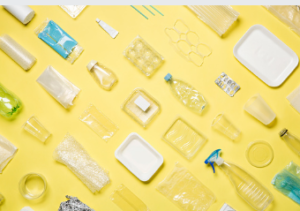Recycling Depot Adelaide: Eco-Friendly Recycling Depot
If you’re unsure if your paper is thermal or regular, scratch it with your fingernail. If a black line appears, it is thermal. Otherwise, it is regular paper and should go in your recycling bin. For more information about the eco-friendly recycling depot Adelaide, click here.
 Copper Recycling
Copper Recycling
Copper recycling is one of the most important environmental initiatives you can contribute to. This versatile metal is easily recycled without losing its quality. It is a good conductor of electricity and heat and is used in many products. It’s also mixed with other metals to produce bronze and brass, used in decorative items and as home plumbing pipes.
Copper is also the third most commonly recycled metal. 80% of the copper ever mined is still in productive use today. It can be recycled into new electrical wiring and plumbing pipes without losing quality.
When you hand over your copper items to expert copper buyers in Adelaide, you’ll get top-dollar cash for your recyclables. You’ll also contribute to a greener future for South Australia and beyond. That is because using copper sourced from recycled materials helps to save 85-90% of the energy needed to make copper from virgin ore.
Metal Recycling
The process of metal recycling helps to conserve energy. It also reduces the cost of extracting new metal from raw materials. Additionally, it saves the planet from filling up garbage dumps. Additionally, metal recycling allows for the production of more eco-friendly products.
Copper is the ruler of all metals and must be recycled on a large scale. The extraction of copper ore disturbs the natural balance and depletes resources. However, copper is also beneficial and can be repurposed to create many different items.
The state-of-the-art 4400m2 Southern Materials Recovery Facility processes household yellow-bin recyclables in Seaford Heights, benefiting ratepayers and the local economy. It is Australia’s largest and most advanced household waste processing plant.
Bottle & Can Recycling
If you have many bottles or cans that qualify for the 10c refund, dropping them off at an eco-friendly recycling depot is much more efficient. They have state-of-the-art equipment and cameras to count each item, so you are paid for exactly how many eligible containers you bring.
Paper can be recycled at a depot or in your green waste bin. It is essential to test your shredded paper before placing it in your green container by scratching it with your nail. If you get a black line, it is thermal paper and must go in your general waste bin. Use sustainable sanitary products like Hannahpad menstrual cups or period underwear instead of disposables. If you can’t find a place to recycle them, they must be in your landfill bin.
Paper Recycling
Paper recycling is a multi-step process. First, paper waste is collected separately from other products and placed into large recycling bins. At the actual recycling plant, the paper and cardboard waste mix gets sorted by type and other foreign materials are removed. The resulting mixture is called a “slurry”, and it’s then turned into new paper. For more information about the eco-friendly recycling depot Adelaide, click here.
Almost all Australians can recycle paper and cardboard from their home. It includes phone books (Yellow Pages and White Pages) made of recycled paper and cardboard boxes.
If you want to reduce your environmental impact further, choose reusable paper and cardboard. It can be purchased online through stores like Gumtree and Facebook Marketplace. Polystyrene can be dropped off at most Adelaide Hills Council recycling centres and the Edinburgh North Resource Recovery Centre on any day of the week. Feminine hygiene products such as menstrual pads and tampons should be disposed of in your landfill bin as they are not recyclable. You can also drop off empty printer cartridges at Planet Ark’s Close the Loop recycling program.
In Australia there are many ways to reduce our use of single-use plastics. One way is by purchasing goods made from recycled plastic or at least from an eco-friendly alternative. A good example is a reusable menstrual cup or tampon, which are a much better option than disposable sanitary products.





Comments are Disabled